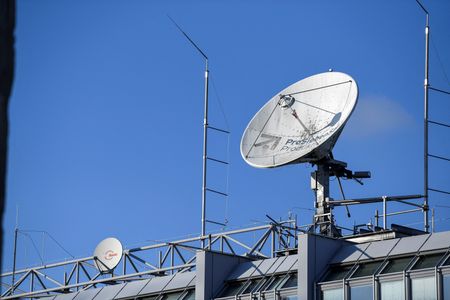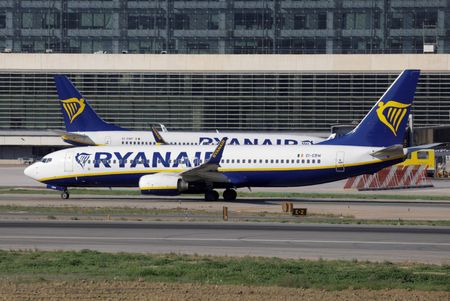By Karin Strohecker and Lefteris Papadimas
LONDON/ATHENS (Reuters) -Investors holding Greece’s growth-linked debt instruments have formed a group to represent their interests, they said, after the government announced earlier this month it planned to buy back the securities.
Greece has told its investors that it wanted to repurchase all of the outstanding GDP-linked warrants due in 2042 for a call price of just over 25 cents on the euro. In a note on May 7, it also said it would seek clarification from an English court on the legal validity and that the call price had been calculated correctly.
GDP-linked warrants are fixed income instruments that usually pay out once economic growth exceeds a certain threshold. They can be highly illiquid and complex to value.
The ad-hoc creditor group counts large institutional holders among its members and owns or controls more than 40% of the GDP-linked warrants. It said in a statement released late on Thursday that it had formed to consider “certain matters” linked to the buyback.
“The group has expressed concerns, in particular the calculation of the call price for the securities,” it said.
A senior official in Athens who requested anonymity told Reuters the government could not comment due to legal proceedings, but it would respect the decision of the court.
Greece issued the warrants in 2012 as part of the country’s behemoth debt overhaul to investors who voluntarily participated in a writedown of the principal, known as a haircut.
A payout on the warrants will be triggered once country’s GDP – currently 240 billion euros ($268 billion) – exceeds 267 billion euros and when economic growth is more than 2%.
Both conditions were expected to be met in 2027 and, according to data from the Greek Electronic Secondary Securities Market HDAT and Reuters calculations, this would mean the Greek government would have to pay about 320 million euros that year.
Meanwhile exercising the call option would require the government to spend 155 million euros on the buyback now.
Greece – the European Union’s most indebted country – is seeking to clear the legacy of its 2009-2018 crisis when it nearly dropped out of the euro zone and years of unrest ensued as ordinary citizens fought against austerity-induced cuts in wages and pensions.
The government expects 2.3% growth this year, twice the euro zone’s average.
The creditor group has retained White & Case LLP as legal adviser.
Argentina and Ukraine have issued similar instruments to the Greek GDP warrant in debt restructurings.
($1 = 0.8936 euros)
(Reporting by Karin Strohecker; editing by Barbara Lewis)










